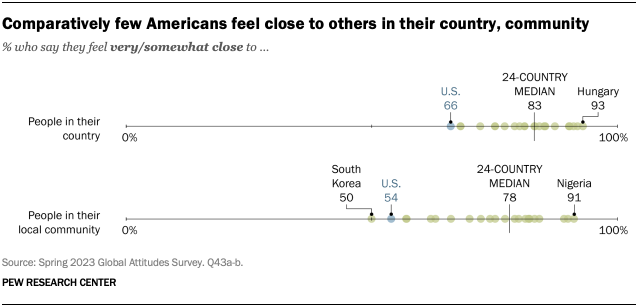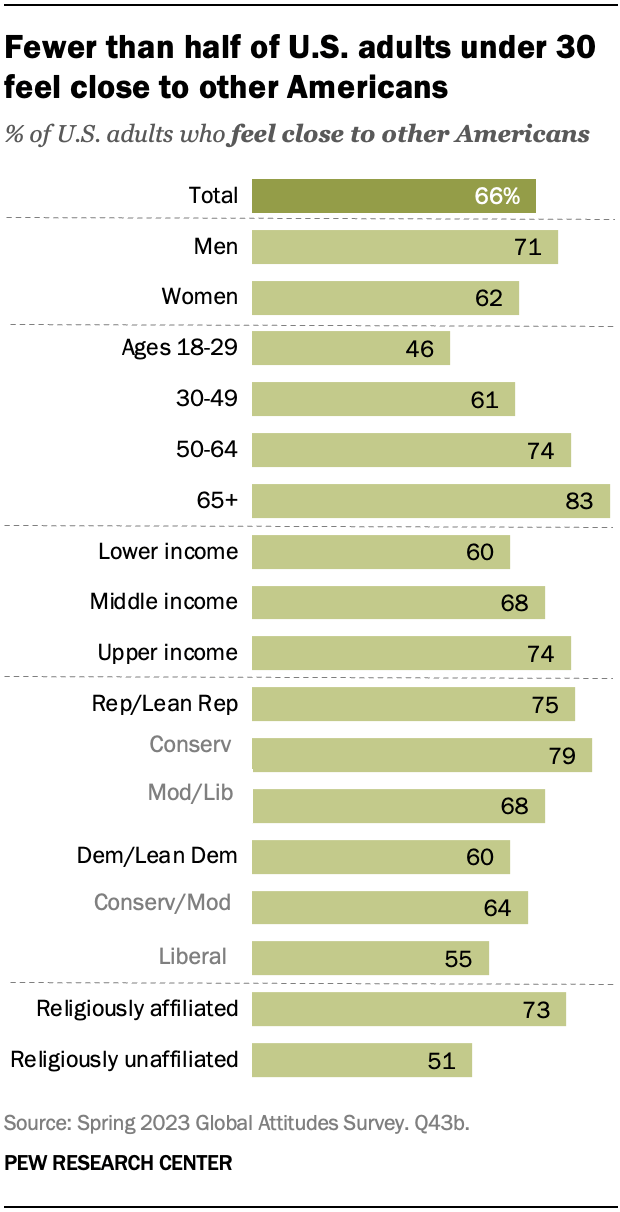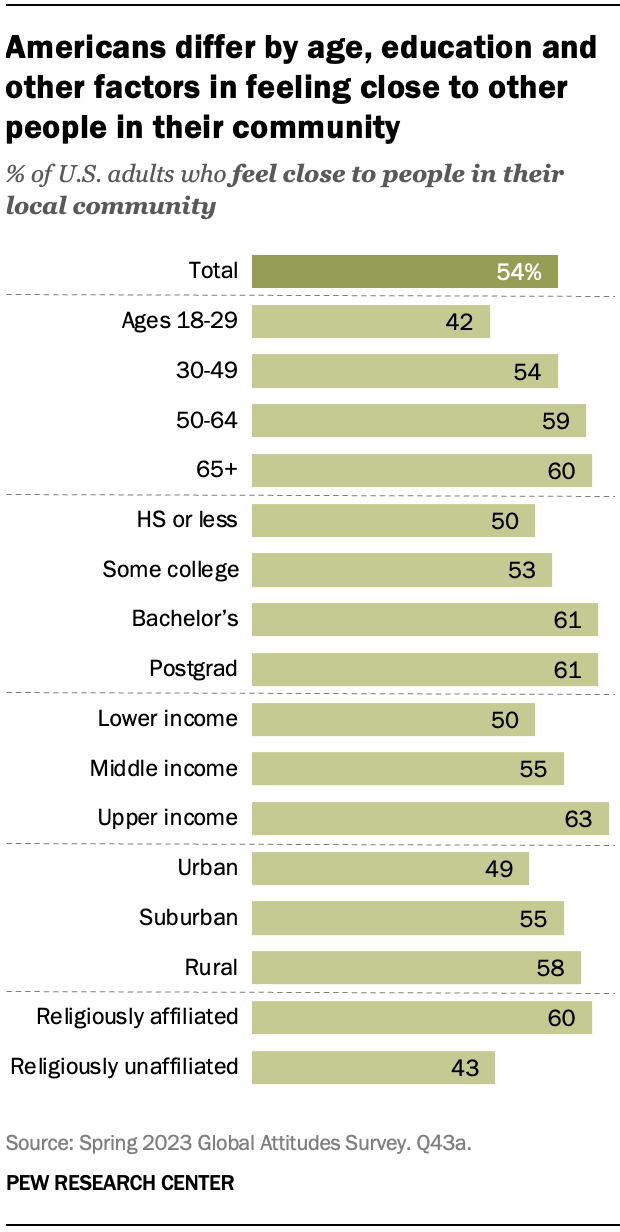
Americans are less likely than people abroad to feel close to others in their country and community, according to a 2023 Pew Research Center survey of 24 nations. This is especially the case among certain groups of Americans, including younger adults, those with lower incomes and less education, those who identify with or lean toward the Democratic Party, and those who are religiously unaffiliated.

This Pew Research Center analysis focuses on Americans’ feelings of closeness to others in their community and their country. We compare data from the United States to data from 23 other countries in the Asia-Pacific region, Europe, Latin America, the Middle East, North America and sub-Saharan Africa.
In the U.S., we surveyed 3,576 adults from March 20 to 26, 2023. Everyone who took part in this survey is a member of the Center’s American Trends Panel (ATP), an online survey panel that is recruited through national, random sampling of residential addresses. This way nearly all U.S. adults have a chance of selection. The survey is weighted to be representative of the U.S. adult population by gender, race, ethnicity, partisan affiliation, education and other categories. Read more about the ATP’s methodology.
For non-U.S. data, this report draws on nationally representative surveys of 27,285 adults conducted from Feb. 20 to May 22, 2023. All surveys were conducted over the phone with adults in Canada, France, Germany, Greece, Italy, Japan, the Netherlands, South Korea, Spain, Sweden and the United Kingdom. Surveys were conducted face-to-face in Argentina, Brazil, Hungary, India, Indonesia, Israel, Kenya, Mexico, Nigeria, Poland and South Africa. In Australia, we used a mixed-mode probability-based online panel. Read more about our international survey methodology.
Across all 24 countries surveyed, a median of 83% of adults say they feel very or somewhat close to other people in their country. A majority of U.S. adults (66%) also hold this view, but Americans are the least likely among those in the countries surveyed to do so.
Even fewer Americans feel close to people in their local community: 54% feel a connection to others near them, compared with a median of 78% of adults across all 24 countries. South Korea is the only country with a lower share of adults who feel connected with others in their community (50%).
Feeling close to other Americans
Some Americans are less likely than others to feel a connection to people in their country. For example, only 46% of adults under 30 feel connected to other Americans, compared with 83% of those ages 65 and older.

There are also differences by party and ideology. Six-in-ten Democrats and Democratic-leaning independents – compared with three-quarters of Republicans and Republican leaners – feel close to other Americans. Liberal Democrats are the least likely to say they feel close to other Americans, while conservative Republicans are the most likely to do so.
A similar ideological gap exists in several other countries, with people on the political left less likely than those on the right to feel close to people in their country.
Religion also plays a role. Religiously unaffiliated Americans are far less likely than their affiliated counterparts to feel close to others in the U.S. (51% vs. 73%). This pattern is mirrored in other measures of religiosity. For example, Americans who say religion is not too or not at all important to them, or who never attend religious services, are generally less likely to feel close to other Americans.
Feeling close to others in their local community
When it comes to feeling close to other people in the same community, there are again large differences by age. Only 42% of U.S. adults under 30 feel close to people in their community, compared with larger shares of older Americans.

There are additional differences on this question by education, income and community type:
- 51% of Americans without a college degree feel close to other people in their local community, compared with 61% of those with a college degree. A similar educational gap is evident in several other countries.
- Lower-income Americans are less likely than those with upper incomes to feel this connection (50% vs. 63%).
- While urban residents may live physically closer to others, they’re less likely than suburban or rural residents to say they feel connected to people in their community.
Differences by religion also emerge. Religiously unaffiliated Americans are much less likely than those who are religiously affiliated to feel connected to others in their local community (43% vs. 60%).
This pattern aligns with previous research on interpersonal connectedness and philanthropy among religious people. Religious people tend to be more likely than nonreligious people to volunteer and give to charity – though they prefer these activities benefit others within their own religious groups.

